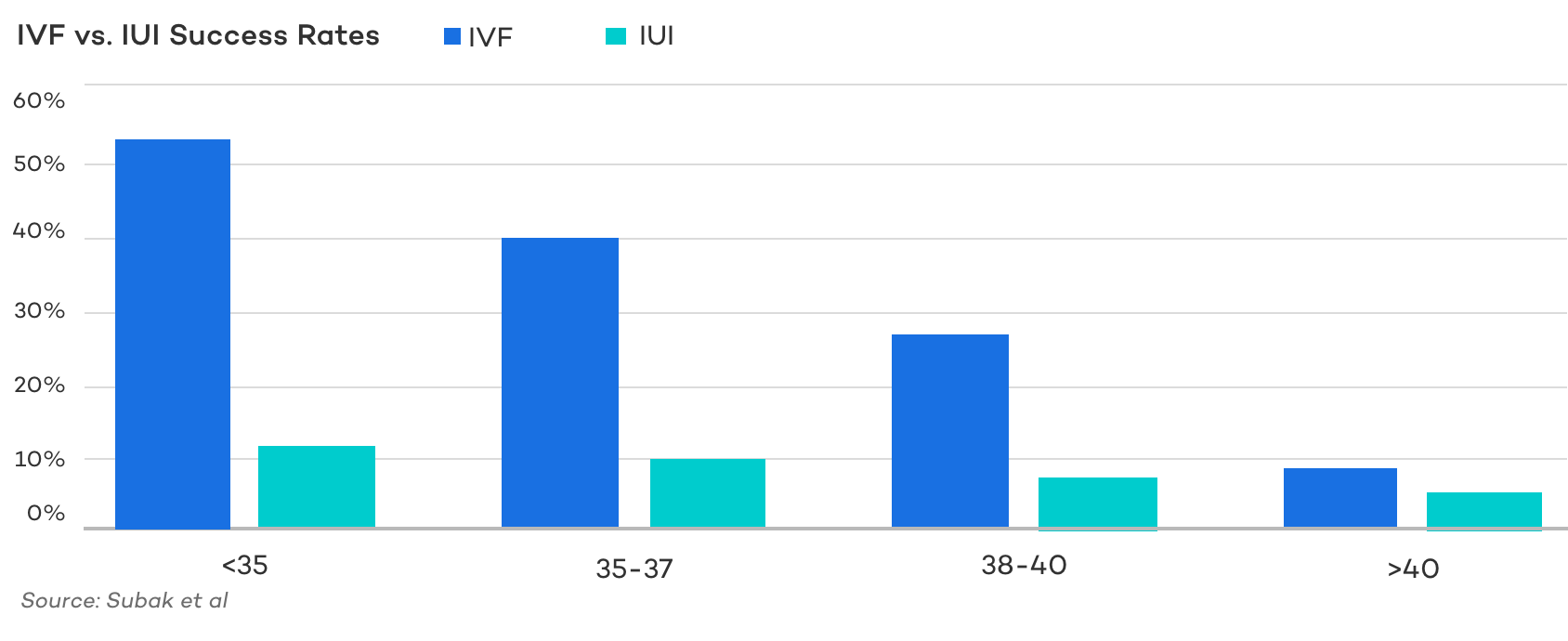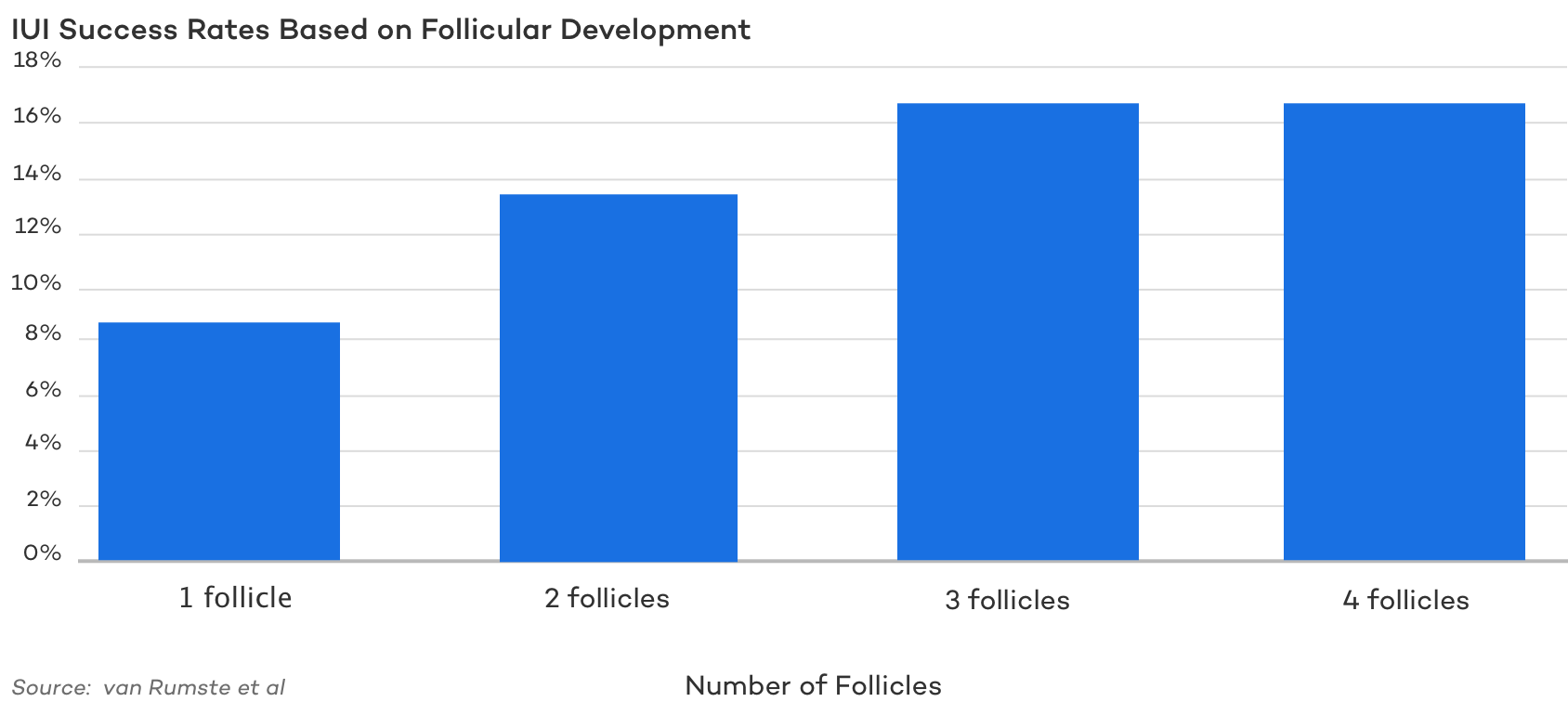
Iui Vs Ivf Success Rates. For patients with more severe infertility factors including a low ovarian reserve it is often worth proceeding to IVF. 6 Gonadotrophin vs Clomiphene citrate. If an IUI is to be successful it most often happens in the first three or four treatment cycles. Both IUI and IVF have helped millions of families across the globe to achieve a successful pregnancy.

Therefore although success rate can increase up to 9 cycles 3 cycles is generally the number recommended before moving on to IVF or intracytoplasmic sperm injection ICSI. IUI performed with fresh highly viable sperm can carry success rates of up to 20. For example one study reported a 98 pregnancy rate using clomiphene citrate much higher than that of natural IUI cycles 33. While the total success rate increased with more cycles the chances of each additional cycle being successful was lower than the previous one. At the Montreal Fertility Centre we are dedicated to creating an atmosphere that optimizes your chance of success. There is evidence that immediate IVF resulted in a higher pregnancy rate with fewer treatment cycles compared to those who had two IUI cycles before switching to IVF.
For women ages 41 to 42 the success rate of IUI is about 13.
For women over 40 your chances are lower 5 for women aged 40 to 42 and 1 for women aged over 42. Age is a crucial factor in determining the success rate of the IUI procedure. The success of IUI depends on many variables such as. This depends on variables like the age of the woman whether fertility drugs have been used and the underlying reasons for infertility. While IUI success rates approach IVF success rates after several repeated cycles on a per cycle basis IUI is many times less effective on a per cycle basis. For women ages 41 to 42 the success rate of IUI is about 13.